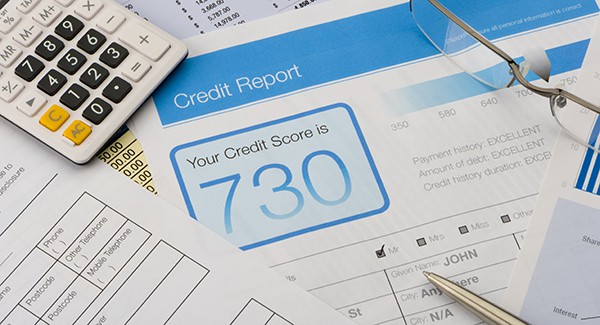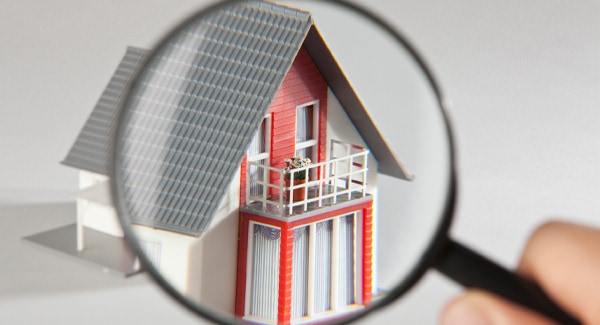
Last Updated on September 6, 2022
Do you suffer from FOMO, or Fear of Missing Out? It’s that nagging feeling that someone, somewhere, is having fun without you, and it can be crazy making.
Whether your Fear of Missing Out is mild or severe, there’s one area where FOMO is completely justified, and may even make your life better: credit scores.
People with good credit scores get access to all kinds of perks, including:
- low interest rates on houses, cars, and credit accounts
- approval for higher loan amounts with lower interest rates
- low to no security deposits on phones and utilities
- more apartment or home choices
- reward credit cards that earn airline miles, cash back, or hotel points
- better auto insurance rates
The common denominator on all these perks? More money. When your credit card, car insurance, and mortgage statements are lower, you have more money in your pocket every single month.
Sometimes FOMO is all in our head, but when it comes to credit, people with lower scores really are missing out on important benefits. The good news is that there are ten things you can do to get and keep a good credit score.
10 tips to help you maintain a good credit score
Get to know your credit history
Knowledge is power, so the first step in getting and keeping a high credit score is knowing what you’re working with. The three major credit bureaus, Equifax, Experian and TransUnion, each provide one free credit report per year through AnnualCreditReport.com.
Dispute errors on your credit report
The Fair Credit Reporting Act gives you the right to dispute any and all errors on your report. It may be distressing to learn that an estimated 30 percent of all credit reports contain errors. Let this fact motivate you to obtain your free annual credit report. For each entry in the report, you’ll see contact information for the company involved. If you don’t recognize any loans or credit accounts that have been opened, call the company immediately, since this might indicate that your identity has been stolen.
Check each credit bureau’s report for inaccurate information, including:
- payments wrongly reported as late
- accounts that don’t belong to you
- bankruptcy that’s not yours
- accounts marked as closed that are actually open
- incorrect contact information
You can dispute errors online, by mail, or by phone. Here is the contact information you’ll need for each bureau:
Equifax
Phone: 866-349-5191
Mailing address:
P.O. Box 740256
Atlanta, GA 30374
Experian
Phone: 888-397-3742
Mailing address:
P.O. Box 4500
Allen, TX 75013
TransUnion
Online dispute link
Phone: 800-916-8800
Mailing address:
Consumer Dispute Center
P.O. Box 2000
Chester, PA 19016
The credit bureau may come back and say that the error is the creditor’s fault, not theirs. In this case you can dispute the error with the creditor, starting with a phone call to the company’s customer service department.
Monitor your credit
Once you have cleared up errors on your report, it’s a good idea to stay on top of it. There are lots of credit monitoring services, some of which are free and some of which require a paid subscription. The free services will alert you to unusual changes in your credit report, but they may not cover all three credit bureaus.
The paid monitoring services may alert you if your name or social security number show up on black market sites frequented by identity thieves. They may also come with access to lawyers and experts to help you fight identity theft. Your credit card company may already offer a monitoring service, so check with them before you get one yourself.
Pay on time, every time
Late payments will really ding your credit score, so do everything you can to stay on top of your bills. And that means all bills, not just credit cards, because any past due bill that goes into collections can affect your credit score.
First, take care of existing late payments. Call any creditors you’ve missed a payment with, and discuss your options. They may agree to take the late payment off your record. Late payments can affect your credit record for seven years, so even if it’s been awhile, removing it will help.
Next, automate your bill payments using your bank’s autopay service. For any bills that aren’t automated, set up email or text alerts ahead of the due date. Keep all your supplies in one spot to make paying bills more convenient. Work with your lending companies to see if they’ll adjust payment due dates to a schedule that works best for you.
If you move a lot, bills can fall through the cracks. Make sure you keep your contact information up to date with every single company or organization that gets your money, including your healthcare providers.
Know your limits
Each credit account has its own limit, and each limit affects your credit score. Know the current credit limit on every account in your name. You have the right to request a limit increase, but make sure they can do it without a “hard” credit check or inquiry. While raising your credit limit is good for your credit score, going through a hard credit check can have a negative impact.
Keep your balances low
The relationship between your credit limit and your credit balance is called your credit utilization score, and it plays a big part in determining your credit score. Aim for your balance to be less than 30% of your limit for each account in your name.
Try to pay your balance in full each month. If you can’t do that, pay as much as you can. And you don’t have to wait until your due date to pay down your balance. Most creditors accept payments at any time during the billing cycle.
Pay off cards with the highest utilization first
Remember the credit utilization score? Use that score to prioritize which account to focus on. The account with the highest balance in relation to credit limit should go first. Once you’ve paid off all your balances, try to only keep a balance on the account with the highest credit limit. This will help you keep your credit utilization score in a healthy range.
Keep accounts open
It may seem like a good idea to close all those old credit cards you don’t use anymore, but you should actually keep them around — even if they’re gathering dust instead of charges. “Credit age” is another factor in determining your credit score, so having a card for a long time can be a good thing, especially if you’re not keeping a balance on it. When you close an account you’ve had for a long time, it can shorten your credit age, which can lower your overall score.
Be debt savvy
When it comes to debt and your credit score, it’s a matter of balance. If you have no record of successfully paying off debt, you look risky to creditors. But if you have a ton of debt and are struggling to pay if off, that’s also a bad look. You want enough debt to establish a record of responsibly paying back money you’ve borrowed.
That doesn’t mean you should open a bunch of credit accounts just to take on debt, but it does mean that you don’t have to avoid credit accounts like the plague. Only borrow money when you actually need it, and only use the amount you can consistently and responsibly pay off. Focus on paying off any large debts that are weighing you (and your credit utilization ratio) down.
Avoid credit inquiries
If you’re trying to maintain a good credit score, you probably don’t want to apply for a car loan, a new credit card, and a mortgage at the same time. Applying for and opening new accounts can ding your score, so plan accordingly and only apply for accounts that you really need, when you need them.
There you have it: the ten-point cure for credit score FOMO. Maintaining a good credit score means more options, more money in your pocket, and never having to worry about missing out on the fun.
Keep reading:
The myth about credit inquiries and getting a mortgage



